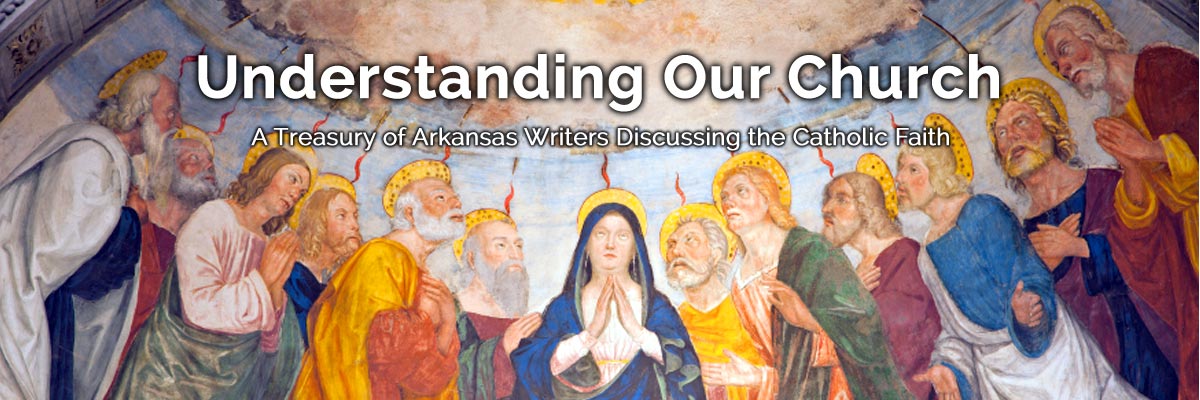Official Website of the
Catholic Diocese of Little Rock
God’s word has power, but sacraments help it grow in lives of faithful
Published: January 11, 2018
By Father Jerome Kodell, OSB
Subiaco Abbey
In a familiar reading from the recent Christmas liturgy, the shepherds, excited by the angels’ announcement of the birth of a savior, say to one another, “Let us go, then, to Bethlehem to see this thing that has taken place.” (Luke 2:15)
In the Greek original, they are not going to see a “thing” but a “word.” Let us go to see this “word” that has taken place. Behind this unfamiliar usage is the rich Hebrew notion of a word, which may be something spoken or written, but may also be an event. The “word sent to the Israelites” in Peter’s speech at Cornelius’ house (Acts 10:36) is Jesus and everything he did, beginning with his baptism in the Jordan.
But there is even more, a dynamic dimension of the word of God in biblical usage, which enriches our understanding of the sacraments as powerful saving words of God. In the earliest book of the New Testament, we find St. Paul saying to the Thessalonian community: “In receiving the word of God from hearing us, you received not a human word but, as it truly is, the word of God, which is now at work in you who believe.” (1 Thessalonians 2:13)
This word does more than express an idea or concept as do ordinary human words, but has an effect beyond our understanding. It is performing a work of grace in us who believe.
This word does more than express an idea or concept as do ordinary human words, but has an effect beyond our understanding. It is performing a work of grace in us who believe.
Isaiah compares the work of the word of God to rain and snow watering the earth, making it fertile and fruitful: “So shall my word be that goes forth from my mouth. It shall not return to me empty, but shall do what pleases me, achieving the end for which I sent it.” (Isaiah 55:11)
The prophets are entrusted with the word as not only a saving message but a saving force. They were not especially trained for their mission, and in several cases were reluctant to accept it. The biblical accounts don’t say the prophets studied for the job, but that the word of God “came” to them, gripped them wholly and became like a fire in their hearts. (Jeremiah 20:9)
Picking up the Old Testament imagery, Jesus compared the word of God to the seed sown by a farmer. It falls on the footpath, on rocky ground and among thorns to no avail, but in fertile soil produces a vast harvest. (Mark 4:3-9)
The word of God, like the seed, has the power of life in itself. Its life-giving energy does not depend on the preacher or the listener, but it is only the listener who can provide the soil for growth.
This keeps the power of the word of God from being magic. There is saving power in every act of Jesus, but when he found no faith in Nazareth, “he was not able to perform any mighty deed there.” (Mark 6:5)
The sacraments of the Church developed from this biblical understanding of the word of God. The sacraments are effective words of God to us for important moments of life and for daily spiritual nourishment. They have power beyond our understanding.
Infant baptism is a stumbling block if the word of God is viewed only as a concept or idea, something we have to assent to with our minds. But it makes complete sense as the initiative of God bringing a spiritual gift by divine power beyond an infant’s (or our) comprehension or control.




